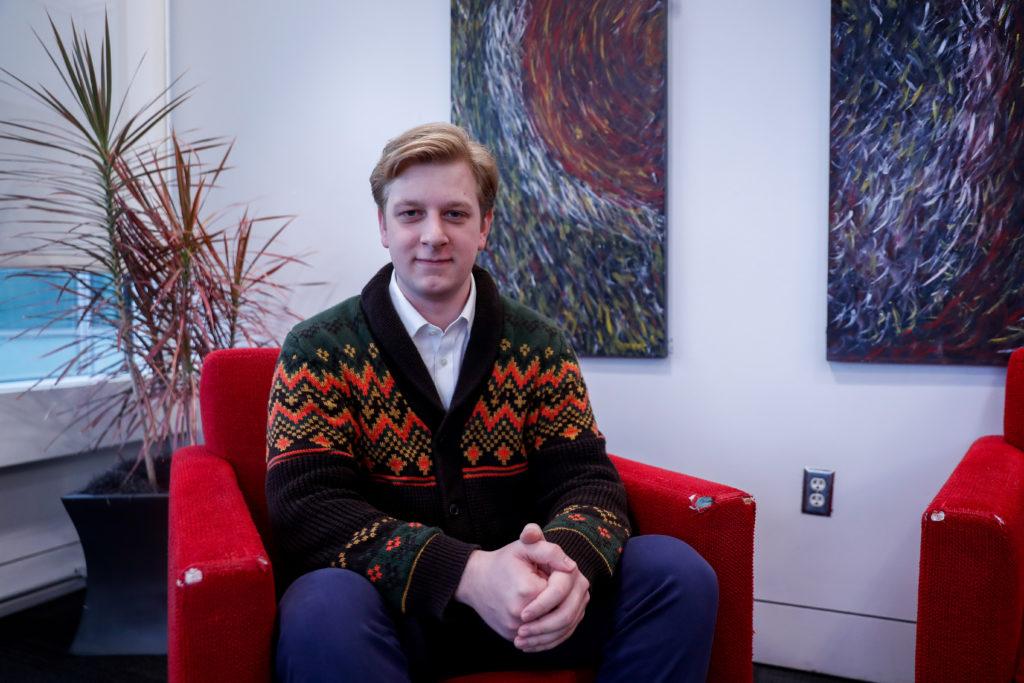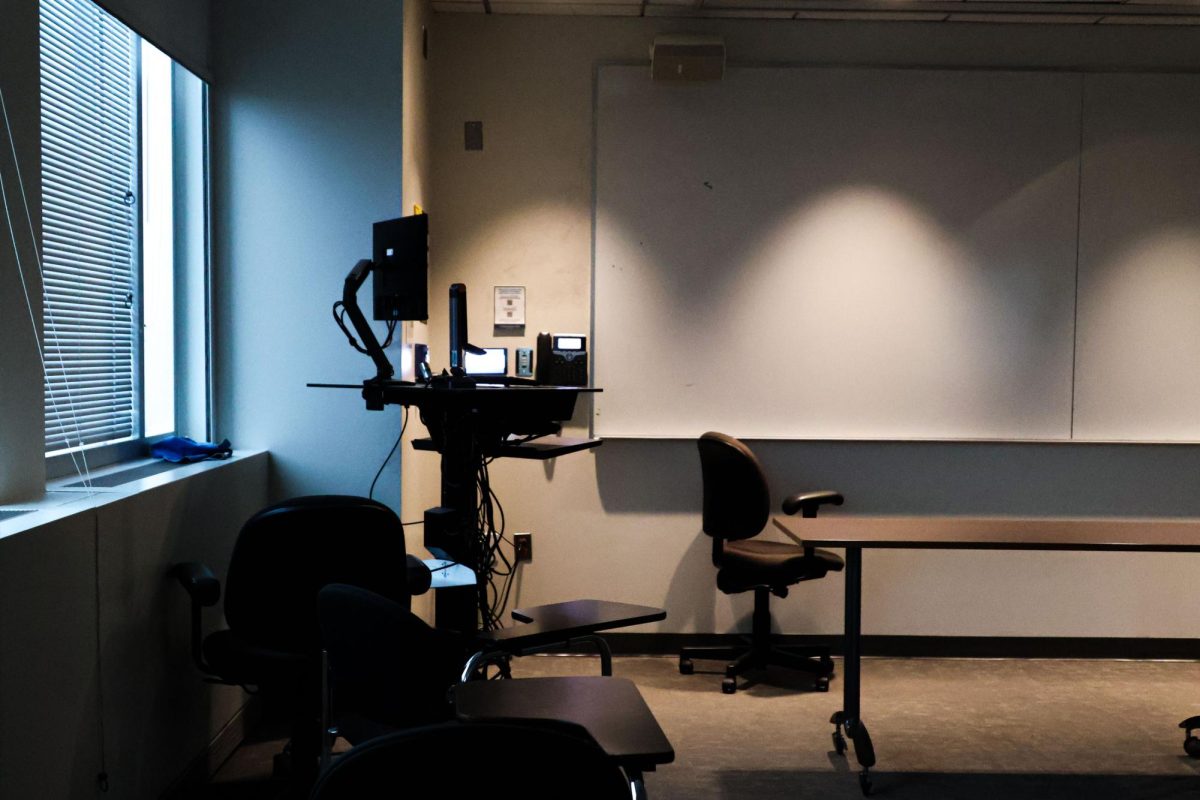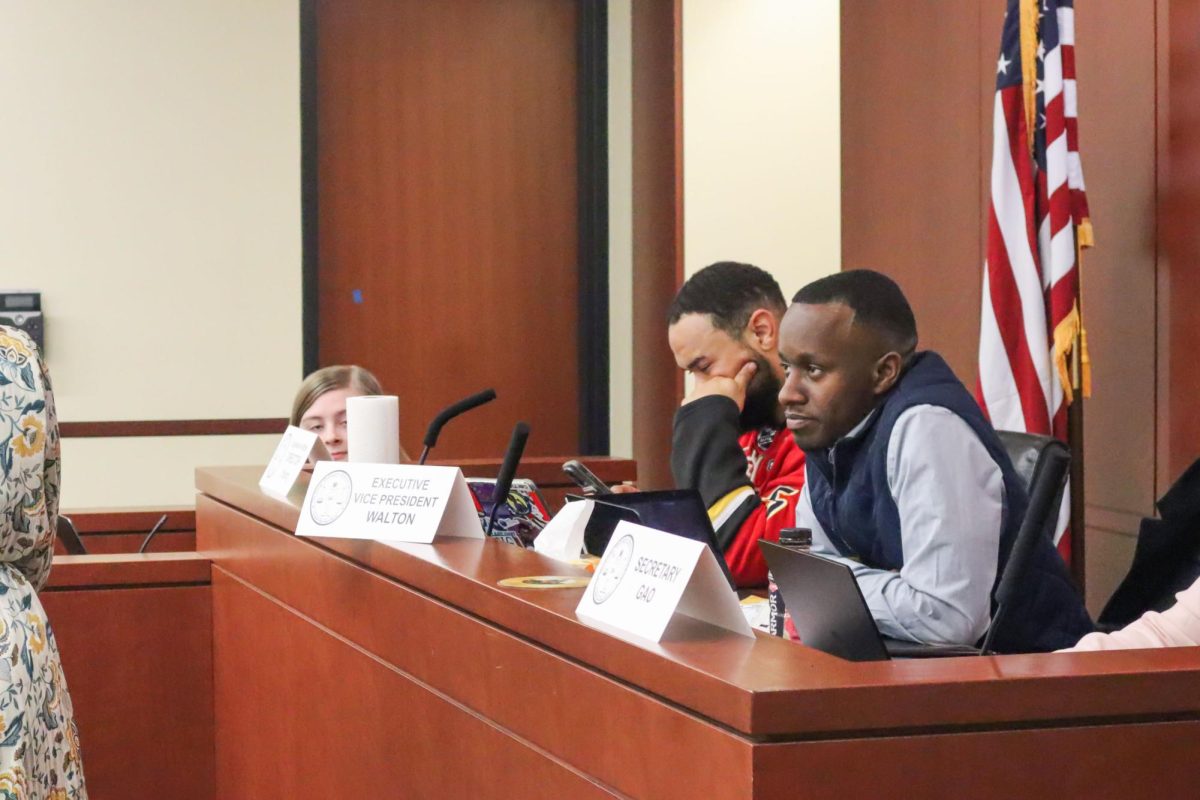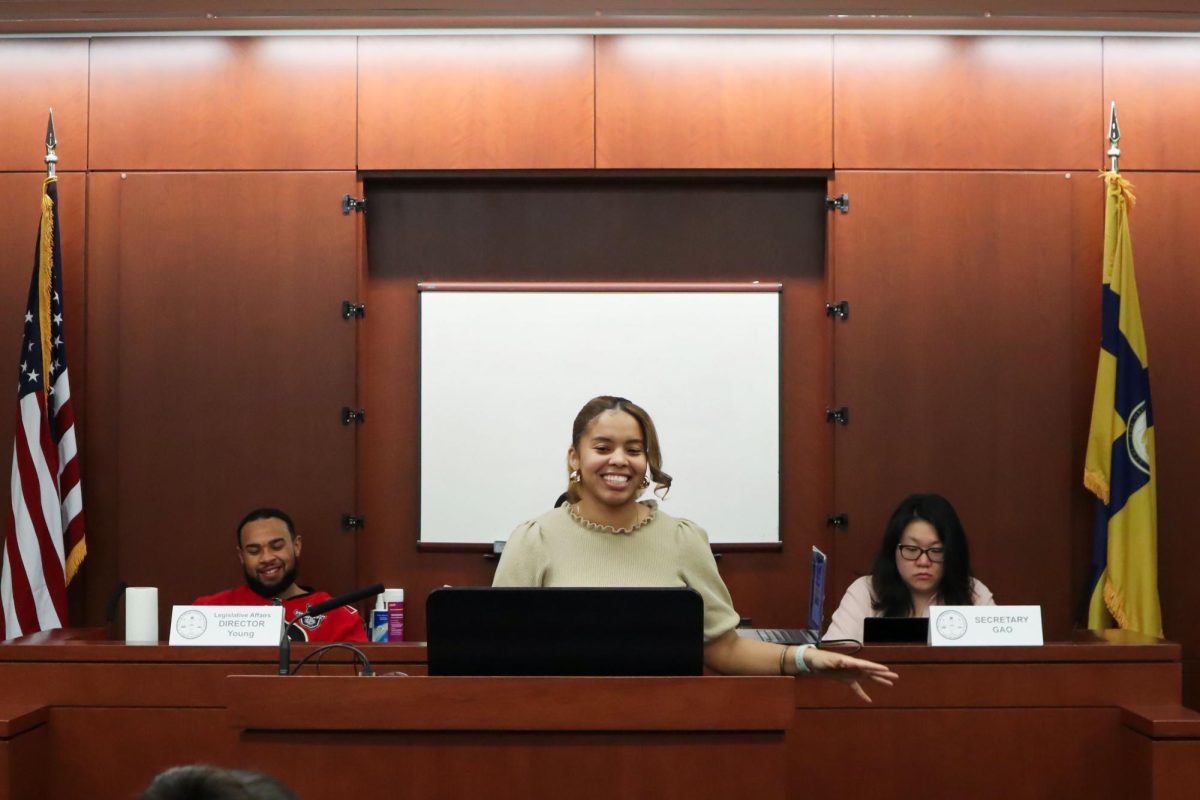Junior Nathan Orner, the SA’s secretary of transportation under former Student Association President Brandon Hill, made the ballot for SA president Wednesday.
Orner, who reached the 385 signatures the Joint Elections Commission requires for SA presidential candidates, said he plans to run on a platform centered around sexual assault prevention, transparency surrounding housing decisions, pedestrian safety and updates to student organization financial allocation policies. In the race for SA president, Orner contends among a field of six other candidates including incumbent SA President Christian Zidouemba, SA Chief of Staff Keanu Rowe and Residence Hall Association President Arielle Geismar.
“To the best of my ability, I’d like to advocate for those issues,” he said. “I know that in the past, SA candidates and presidents have not necessarily held very many direct issue-based meetings, which has led to some of the most basic things that can be addressed to not get addressed. I think that if the student body as a whole, or at least as individuals and as org members and as orgs demonstrate an issue, then that issue should be addressed.”
Orner’s opponents in the race for SA president also include SA Sen. Rami Hanash Jr., GWSB-U, Mohamed Redzuan bin Mohamed Raffe, the vice president of external affairs for GW Entrepreneurship Club, and former SA senior policy adviser Edy Koenigs, whom Orner said he’s currently dating. He said though his and Koenigs’ “policy focuses” differ, they believe in each other’s ability to advocate for the student body.
“We do support each other 100 percent and each other running for SA president,” he said.
Orner, a political science major, said he plans to add therapy to GW’s student insurance plan to increase support for survivors of sexual assault on campus. GW began offering free virtual therapy in January.
Orner said he wants to create an anonymous form for students to report instances of sexual assault, which would first go to the SA and later the Title IX Office to “ensure” the Title IX Office takes students’ claims “seriously.” He said he has received complaints from students alleging the Title IX Office often fails to address reports in a timely manner.
“I would like to address that by trying to open up a form that has zero identifying information, except for when the date that the thing was filed,” he said.
Koenigs announced similar Title IX policies, including a new reporting form that would go to the SA, in her candidacy announcement on Instagram earlier this month.
Orner said he decided to run two months ago, in part inspired by his experience with housing last year wherein he unnecessarily moved across four rooms due to mold issues and “administrative issues.” Orner said he hopes to institute a policy promoting communication between students and Campus Living and Residential Education through measures like a form for students to relay their housing-related concerns.
“It’s important for us to set up a policy of being able to have open contact with students about their housing problems,” he said.
He said if elected, he plans to work with Transportation and Logistics Services to install new crosswalks and close off H Street between 22nd and 21st streets in hopes of increasing pedestrian safety on campus. He said he would advocate for new crosswalks between District House and Tatte, Western Market and University Yard and Kogan Plaza and Corcoran Hall to prevent jaywalking.
“These areas are all areas in which students have to jaywalk all the time,” he said. “I’ve done it myself, I have seen other students do it and it’s just not safe.”
Orner said he also plans to increase the number of GW Safe Rides at night. Former SA Vice President Kate Carpenter expanded Safe Ride distance last year into the 2400 M Apartments, The Flats at Dupont Circle and the Lincoln Memorial.
He said he would like to launch an investigation into why students are denied rides, especially late at night.
Orner said the allocation of funding for student organizations needs reform to ensure that even smaller student organizations are receiving money. He said he would enact a required base amount of funding of at least $200 for all student organizations to help cover administrative costs.
Twelve student organizations received none of the funding they requested in the last general allocation period.
“I would say the majority of orgs that I’ve spoken with got zero actual direct money, especially the smaller ones,” he said.
If elected, he said he plans to redistribute funds currently delegated to the SA’s food budget and put them toward student organization funding. The SA Senate publicly disclosed its spending records for the first time earlier this year, revealing that the senate allocated $4,000 for food.
Orner said he also wants to include relevant student organizations in discussions about policies that directly impact their funding, whether those discussions occur in the senate or elsewhere in the SA.
“Not only are orgs not allowed to spend money on food,” Orner said. “They are not given any money whatsoever.”
The senate amended the SA bylaws in late February to permit allocations for food that’s not restricted to cultural and religious purposes, as was the case before, though cultural food would still take precedence.
Orner said he also plans to meet with faculty department heads to make syllabi available prior to course registration so students can get an accurate understanding of the costs and coursework associated with their classes.
“Syllabi should be basically an advertisement in a certain way to know exactly what you’re getting into when you register for courses,” he said. “It shouldn’t be a surprise thing that happens a week or two after you register.”











